Is the Eucharist Really Just a Symbol? 5 Convincing Proofs that Say that It’s Not
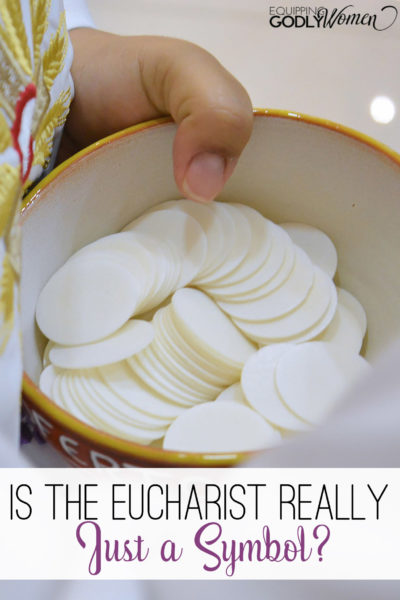
This post is post 3 in a series entitled Letting God Lead: My Journey Through Protestant and Catholic Beliefs. While you certainly can read this post by itself, I highly encourage you to check out the rest of the series as well. Find more about this series and a list of all of posts here. This post contains affiliate links.
The first blow to my old Protestant belief system was a big one, and one I wasn’t expecting. As I was reading along in the book Surprised by Truth, one section jumped right off the page and stopped me right in my tracks:
“Writing to the church at Smyrna, a major Christian center in Asia Minor, Ignatius condemned heretics who denied that Christ had an actual physical body… To refute them, Ignatius wrote “They [the heretics] even absent themselves from the Eucharist and public prayers [cf. Acts 2:42], because they will not admit that the Eucharist is the flesh of our Savior Jesus Christ which suffered for our sins and which the Father in his goodness afterwards raised up again.”
Now, I’d had Catholics tell me that Jesus’s words “This is my body” and “This is my blood” were literal before, but not one of them could ever give me a single solid reason why I should believe it other than because that’s what they *thought* the words meant. Well… that’s not a very good argument. They thought it meant one thing–I thought it meant another. So… not exactly convincing.
You see, Jesus spoke in parables all the time, I reasoned. Therefore, the most logical conclusion was that this was simply another metaphor too. Just like how he said he was the vine and the door. Metaphors.
Except that once I started researching further, I started to discover things I never knew before. And in the course of my research, I found five very convincing reasons why the Eucharist must be none other than the real body and blood. Maybe they’ll convince you too?
1. The Early Church Believed It
I’ve always thought that if anyone had a chance of getting it right, it was the early church. After all, they were the ones who heard it straight from the source.
Take Ignatius, for example (author of the quote above). Ignatius was the first bishop of Antioch (the city were Jesus’ followers were first called Christians) and he studied under the apostle John (the one that wrote the Gospel of John). I’d say he would probably be a pretty reliable source! And yet, here he was writing about the real presence of the Eucharist as though it were common knowledge only 10 to 15 years after the apostle John’s death! That’s not a lot of time to get the message mixed up.
You don’t just have to take his word for it though. Apparently all of the early church fathers believed in the real presence of the Lord in the Eucharist. In fact, the doctrine was never seriously questioned until the 11th century. Hmmm…. Did not know that.
Given the choice between what my pastor says today and the beliefs of the first (and second, and third…) century church… well that’s a pretty strong argument. And it’s not the only one.
2. The Jews Couldn’t Accept It
Another thing I never realized: The “this is my body… this is my blood” passage you read in Luke… it isn’t the only time when Jesus talks about being the bread of life.
I won’t retype the entire passage here, but I strongly encourage you to look up and read John 6:22-71 (link for your convenience). In it, Jesus has a lengthy discussion with the Jews in which he compares the manna the Israelites ate in the desert and the bread of eternal life that God offers today. The Jews are understandably very confused, but Jesus just keeps repeating the same thing over and over again.
“Jesus said to them, “I am the bread of life; whoever comes to me will never hunger, and whoever believes in me will never thirst.” –John 6:33
“I am the bread of life. Your ancestors ate the manna in the desert, but they died; this is the bread that comes down from heaven so that one may eat it and not die. I am the living bread that came down from heaven; whoever eats this bread will live forever; and the bread that I will give is my flesh for the life of the world.” –John 6:48-51
“Jesus said to them, ‘Amen, amen, I say to you, unless you eat the flesh of the Son of Man and drink his blood, you do not have life within you. Whoever eats my flesh and drinks my blood has eternal life, and I will raise him on the last day. For my flesh is true food, and my blood is true drink. Whoever eats my flesh and drinks my blood remains in me and I in him.'” –John 6:53-56.
But where it REALLY gets interesting is the Jews’ reaction after the fact. In verse 66, it records that “many [of] his disciples returned to their former way of life and no longer accompanied him.” Would they leave over a mere symbol? Seems doubtful. So I’m guessing that the Jewish people knew Jesus was being literal, even if they didn’t really understand it.
3. Jesus’s Use of the Greek Word “Trogon”
While having the ability to read the Bible in English is wonderful; it does come with some limitations. One of which is the fact that some things are lost in translation.
What you DON’T notice when reading the passage above is that when Jesus talks about eating, he is actually using two separate verbs. At first, he uses the Greek word “phagon” which is the normal Greek word for “to eat.” Part way through the passage, however, he suddenly switches to the word “trogon,” which literally means to crunch or gnaw.
Jesus wasn’t telling them to “partake” or “consume.” He was saying they literally had to crunch, gnaw or chew. (Kind of hard to “crunch” on a symbol… but you can try!) Furthermore, the tense of the word “trogon” implies that this is an action that will take place continuously over time–not as a one-time event.
4. The Eucharist Comes with a Strong Warning
Fast forward to 1 Corinthians, and you’ll find this strongly worded passage:
“Therefore, whoever eats the bread or drinks the cup of the Lord unworthily will have to answer for the body and blood of the Lord… For anyone who eats and drinks without discerning the body, eats and drinks judgement on himself. That is why many among you are ill and infirm, and a considerable number are dying.” –1 Corinthians 11:27, 29-30
Since when do mere symbols come with death penalties?
5. Eucharistic Miracles
Before a few weeks ago, I never even knew there was such a thing as Eucharistic miracles. At first I was very skeptical–because how could you even prove something like this? But from what I can tell at least SOME of the miracles are VERY well documented, scientific and hard to dispute.
This video on the Eucharistic Miracle of Lanciano was my favorite by far. It’s not gross (Some of them are gross! Is it bad to say that?), but it is based on science and facts, and it’s really interesting!!
https://www.youtube.com/watch?v=WeIz4UGI_Zc
Well, there you have it, folks. These aren’t the only reasons–I actually came up with a few more–but if you believe in the Bible and these arguments don’t convince you (or at least cause you to question!), then I don’t know what will!
And now to answer a few of the burning questions you’ve been asking…
What do Catholics Believe About the Holy Eucharist?
In brief:
- The Holy Eucharist is the real body and blood of Jesus Christ in substance, even though still unleavened bread and wine in appearance. This is called “transubstantiation.”
- The elements become the body and blood at the moment when the priest says the words “This is my body” *poof!* and “This is my blood” *poof!*
- They stay the real body and blood as long as they keep their same form. (Once you digest them, they aren’t anymore.)
- Taking the Eucharist offers forgiveness for minor (venial) sins, but not major (mortal) sins. If you are in a state of mortal sin, you should not take the Eucharist until after you go to confession. (Venial/Mortal sins and confession are all topics for another day)
- Jesus is wholly present in equal amounts whether you have one speck of either the unleavened bread OR the wine or if you have a huge helping of both. Same amount of Jesus. (See the video above. That was awesome.)
Why Can’t Protestants Take Part in the Eucharist in a Catholic Church?
At Protestant churches, all Christians are welcome to receive the communion, yet at Catholic churches, only Catholics can. Why is that?
Well, contrary to popular belief, Catholics aren’t discriminating against non-Catholics. Instead, the main reason is that Catholics recognize the Eucharist as the true body and blood, and so they don’t just hand it out to people who don’t believe in it or who might treat it without the reverence and respect that it deserves.
Most Protestants do not believe that the Eucharist is the true body and blood–but only a symbol–and so for a Protestant to take the Eucharist without believing in it would be considered eating without discerning–a very serious offense according to 1 Corinthians 11:29.
Secondly, according to 1 Corinthians 11:16-17, everyone who participates does so in fellowship as part of a whole, unified community. (Catholics do not believe mass happens at individual churches, but that there is ONE mass in Heaven and by receiving on Earth, they are participating in the Heavenly mass with God and the angels.) While Catholics would love to welcome Protestants to the table, it would imply a unity that isn’t really there. (Not my rule. Don’t look at me.)
And finally–not all Catholics can participate in the Eucharist either. In order to partake, Catholics and non-Catholics have to be in a state of grace, have to have gone to confessions since their last mortal sin, and some other stuff. Protestants (and many Catholics) don’t meet these guidelines.
So… for those of you who were asking–these are the official reasons. And you should probably go check out these two articles which can explain it much better than I can:
Who Can Receive Communion on Catholic.com
Why Can’t Non-Catholics Take Communion on CatholicBridge.com
So I hope that helps?
Conclusion
I know that the Eucharist is strange and doesn’t make a lot of sense. But honestly, much of Christianity doesn’t make sense when you look at it from a purely logical perspective. (Three persons in one? There has to be blood shed for our sins?) That’s why it takes faith.
But–thankfully for people who need logic too (like me)–it isn’t JUST faith. There are very convincing reasons to believe in it too. And these are my five.
Discussion time! Do you believe the Eucharist is the real body and blood? Why or why not? What questions or concerns do you have?
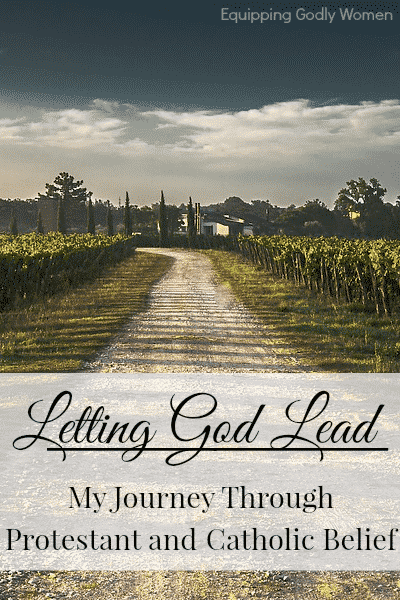
Enjoyed this post? Don’t miss the rest of the posts in the series!
The Day I Realized My Religion Got it Wrong
10 Common Catholic Church Myths that Critics Believe
Is the Eucharist Really Just a Symbol?
Who has the Ultimate Authority? A Biblical Look at Sola Scriptura
A Brief Look at the History of Christianity
What All Christians Should Know About Priests, the Pope and Confession
What Do Catholics Really Believe About Mary, Saints and Statues?
Infant Baptism or Believer’s Baptism? Which is Correct?
What is Purgatory? What are Indulgences?
Why Do Catholics….? Honest Answers to Your Burning Questions
Protestant and Catholic Beliefs Series Conclusion
Resources
I’m not asking you to believe because I say so. Please DON’T take my word for it! The purpose of this series is only to share what I’ve learned on my journey in order to inspire you to begin a journey of your own. Here are a few helpful resources to get you started.
*This post contains affiliate links, which means if you make a purchase, I may make a small commission at no additional cost to you. Thank you!
Catechism of the Catholic Church
Surprised by Truth: 11 Converts Give Biblical and Historical Reasons for Becoming Catholic by Patrick Madrid
A Concise History of the Catholic Church by Thomas Bokenkotter
What Catholics Believe about John 6 by Tim Staples
Two Minute Answers to Your Questions About the Catholic Faith by CatholicsComeHome.org
Who Can Receive Communion by Robert H. Brom
Why can’t non-Catholics, Evangelicals and Protestant denominations receive Catholic Communion? by CatholicBridge.com

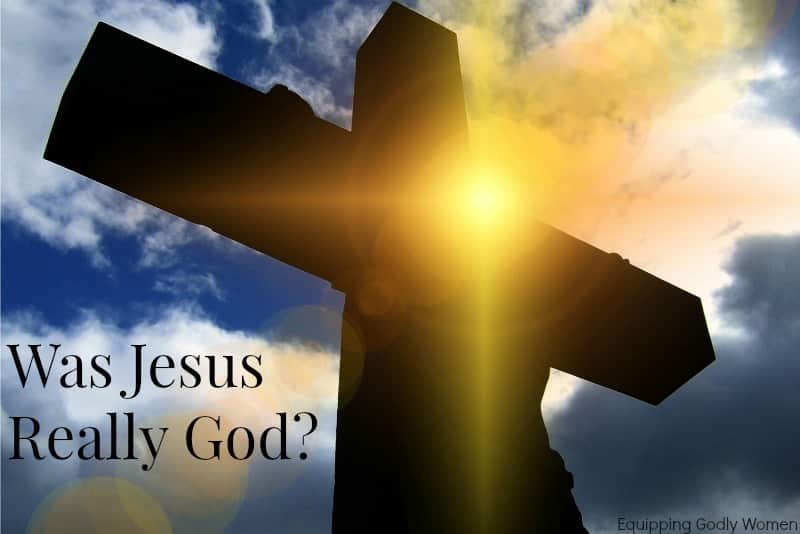


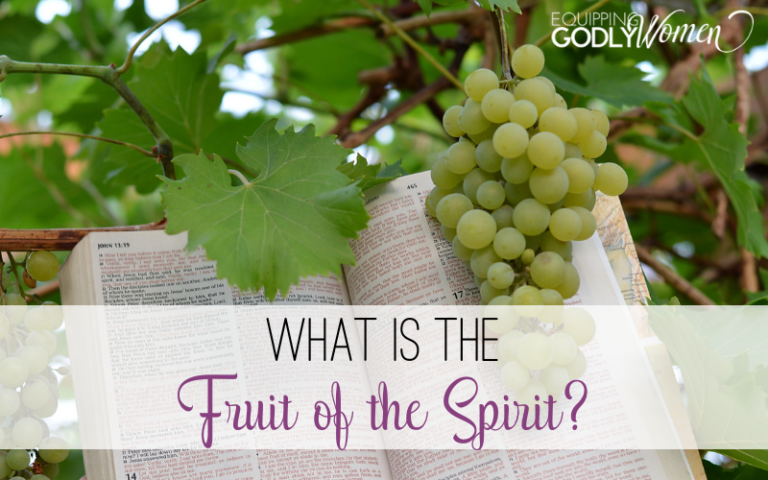
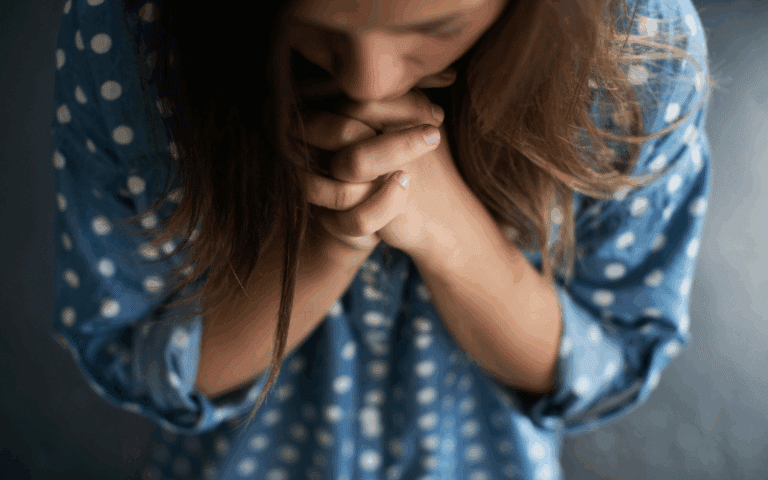

I love the article and I think it’s a great, concise, and helpful description of our beliefs. In your bullet points, you say that the bread and wine become the Body and Blood when the priest says the words of consecration… *poof* This is an incorrect way to state this. We do not believe in magic, which is what this sounds like. The priest does not make the gifts transubstantiate. What really happens? The bread and wine become the Body and Blood when God wills it through the Holy Spirit. We believe this happens during the Eucharistic prayer and the prayer of consecration; not of our own accord or actions like magic words (*poof*), but rather of the Will of God. I think this is a very important point for all Catholics and anyone looking at the Church to understand.
Well, I don’t mean the priest uses magic words or that it really goes *poof* lol. But, to someone who doesn’t understand–it is kind of like magic. Not the bad kind, but the good kind. How does it exactly happen? I don’t know. God makes it happen! *poof* just like that! It just does! It’s a mystery!
Brittany,
This is a beautiful sharing of your journey! I “reverted” to the Church in 2005 after a 7 year journey. Interesting that one of the first few months for me also was affected greatly by Patrick Madrid’s book, Surprised by Truth. Sitting in the library of an Abbey where I had gone to meet with one of the monks, I just “happened” to grab it off the shelf. I was spell bound with the testimonies! Having left the church in my early twenties, in my thirties I experienced a renewal that lead me into the Protestant church for 22 yrs. My number one desire was to see my Catholic family “reborn”. Long story short, it was the longing for the Eucharist that drew me home to my roots. It is a daily longing that only intimacy with Jesus in the Eucharist satisfies my heart. “I in Thee and Thou in me, in time and in eternity”!
As I have read through all the comments, the ones posted by Father Paul and Alex Hill have been most helpful and meaningful for me. I hope it might be OK to repost something that Alex posted on January 28th that fits in again at this point on February 4. There is just something so profound in its holiness and spiritual reality that he shared that is worth repeating. Bless you and I will be keeping you in my prayers with great joy as you continue your journey!!
Alex Hill
January 28, 2015 at 11:26 pm – Reply
I’m really enjoying this series, Brittany, and glad you are witnessing to truth as found in scripture and the early Church beliefs. I have two “nuances.” While we believe the miracle of transubstantiation does occur with Christ’s words of Institution, saying “poof” makes it sound a little like a sudden magic act! The Holy Spirit is present at the altar and acting upon the elements of bread and wine from the beginning of the Eucharistic prayer. And while it is true that Christ’s body and blood (and soul and divinity) are present as long as the appearance of bread and wine remain, when we consume Him in this way, WE become the form of Christ. He “abides in us and we in him” (John 6:56). So his presence is not LOST by digestion, but made intimately personal. As Paul says, “it is not I who live, but Christ who lives in me.” (Gal 2:20). God bless your journey!
Stories really do hold some power don’t they! Hopefully my story will help people as well. Thanks for sharing yours 🙂
Please don’t lump all protestant churches together. I am a Lutheran MS and we also have close communion and believe in the true body and blood. You must understand our beliefs to commune with us also.
You are correct in that assertion, Judy. But, if you look careful at both expressions of faith there is a definite difference. In Lutheranism the belief is cosubstancial, while in Catholicism it is transubstantial.
Additionally, (don’t mean to offend and sound supremacist, because that is not the intent, only wish the truth to be clear) the Catholic Church has defined a while back that, beside some schismatic groups that have apostolic succession such as the SSPX, only the ancient churches with apostolic succession have valid Holy Orders (ordination). The Anglican church held valid orders for a while, after it broke away from the Catholic Church, but those ceased once the prayers and intent of the ordination of priests and bishops was changed during the Cromwell years (if I am not mistaking). A similar situation took place with Luther’s breakaway. Luther was a fully ordained priest, just like the other priests that left with him, their ‘holy orders’ ceased to be passed on for the same reasons.
Hope this helps.
Hi, Judy. While I would absolutely love to speak about every single denomination individually, apparently there are around 30,000 of them… so…. that’s not exactly practical. The point of this series isn’t to share every single fact about every single issue or every single denomination, just to share a few things that I’ve learned personally on this journey I’m on currently. But thank you for sharing! Now I’ve learned something new 🙂
My husband recently had a transformative experience because of the Holy Eucharist. He is not Catholic and a priest had forgotten this (because he’s been going to church with me for over 10 years) and the priest asked him to consume some precious blood rather than have it go down a drain. My husband complied because it was in the middle of a service and he didn’t want to call out the priest for forgeting in front of people. So after Mass I asked him if he felt different and he said YES! And he felt like it wasn’t wine because wine normally gives him some immediate symptoms and he avoids wine. About a week or so later, he told me he was going to RCIA classes and felt that this situation was a call from God to join the Catholic church and now he’s on his way to join the church at Easter. The Holy Eucharist IS SPECIAL and it is a shame that we cradle Catholics do take it for granted sometimes.
Wow, that’s quite a story! I’m not sure what I would have done in your husband’s situation…. I’m glad he is attending RCIA to learn more though!
This is lovely, thank you for posting! I am a convert of about 17 years now. My husband was studying for his MDIV at Denver Seminary when we began to be drawn to Rome- long story short, we left seminary 36 hrs short of his MDIV to wander around in a no man’s land between Eastern Orthodoxy and Roman Catholicism before finding ourselves happily joined to the Church in 1997. Seventeen years, seven children, five grandchildren and two careers later- there is not a day when I regret finding my Lord and Savior hidden but wholly available to me in the Most Blessed Sacrament or the Sacrament of Penance. If you need a swimming buddy for transversing the Tiber, I’ve been there and done that, and I would gladly swim it over and over again, rapids and sharks included, for one taste of heaven on earth that is My Lord Jesus Christ in the fullness of this faith!
Wow! That must have been terrifying! I can’t imagine calling it quits at that stage of the game. I remember when I had one semester left to go in my education degree–how badly I needed to get it finished once and for all. Did he never complete his degree? And yes, I’ll take a swimming buddy any day! (As long as we don’t have to literally go swimming–we have several inches of snow here currently!) 🙂
As a cradle Catholic, a long time ago, I tried leaving the Catholic Church. When I went to other services that did not have the Holy Eucharist, I was never so empty in my life. I came back for good.
I know my husband says that going to Protestant churches with me just doesn’t feel like “church” to him. (To be fair, I feel the same way at Catholic church….) 🙂
Wow! Brittany, continuing to read these posts I pray you don’t get overwhelmed with all of us “reverts” and converts who are so passionate! Hard to hide our excitement when a person discovers the beautiful banquet the Lord has prepared for us!
A little overwhelmed (have you SEEN all the responses these posts are getting? lol!) but I’m hanging in there 🙂 I understand the excitement, and I’m really happy to see so many passionate Christians diving in and discussing the issues! It’s really great!
Brittany,
As a Catholic, I really love and admire the way you’re approaching the major topics of the Catholic Church. I think you’re doing a fantastic job of speaking about the Catholic church and her beliefs in a simple, understandable way. I do hope for those reading that aren’t Catholic that it helps them understand where we’re coming from more as Catholics. I know sometimes it can be confusing because there is so much to our church and some of it (like Mary/Saints, the Eucharist etc) are just different and unfamiliar in comparison to a lot of Protestant churches. I do hope this blog of yours brings lots of good, positive conversations.
Praying for you on your journey of faith!
Also, feel free to shoot me an email if you need any help finding resources. I work in ministry, and love this sort of thing! I’m all about conversation, not conversion (although conversion is great! I’m just not forcing it).
Thanks, Chelsea! What is your work exactly? (Just curious)
I work as the Dir of Faith Formation for a church in Florida. I oversee all Sacrament prep programs, Sunday school classes, youth ministry, Adult Faith Formation/Bible studies, etc. My umbrella is pretty big lol. Our website is http://www.ourladydunedin.org if you want to check it out! Our new/updated site debuts next week too (so if you look at it now, sorry it’s kinda old and corny)
Coming from a background with one Catholic and non-Catholic parent as well as lots of friends who were Protestant/Evangelical and not always accepting of my Catholic faith, it’s refreshing to read about someone who is open to learning about it. 🙂
Nice! And thanks 🙂
“why is this night different than all of the other nights?” This was a question I’m certain that Christ asked at the last supper. The Jews in attendance would have roasted lamb, matzah (someone called it a wafer) wine and some other foods at the last Seder. Why were they eating this meal togetether? They were fulfilling the law by remembering and re enacting the Passover meal. More importantly, they were part of the true Passover. A lamb was chosen to be the sacrifice. The blood was poured out and some anointed the door posts as a signal to the angel that these people were “being saved.” The lamb was roasted and Unleavened bread was made in haste. Their journey was about to begin. The good gift (Eucharist) was the sacrifice that Christ made. We are to eat (believe) and drink (be marked by the Holy Spirit) so that when judgement begins….we are passed over. Christ said do this in remembrance of me. Like the Passover Seder, this should echo until he returns.
What is interesting is the absence of the roasted lamb in the last Seder account. In Gen. 22:7 Isaac asked “And Isaac spake unto Abraham his father, and said, My father: and he said, Here am I, my son. And he said, Behold the fire and the wood: but where is the lamb for a burnt offering?” The last supper is the answer to that question. Jesus is the hidden manna, the life that sustains every believer while in this wilderness. Even though he was broken, we become one body as we share in the end result of his sacrifice. Communion of the saints. By not allowing non Catholics to take part in the Union of saints, judgement has been made for the believer. This discernment should be made by the individual believer, not the church.